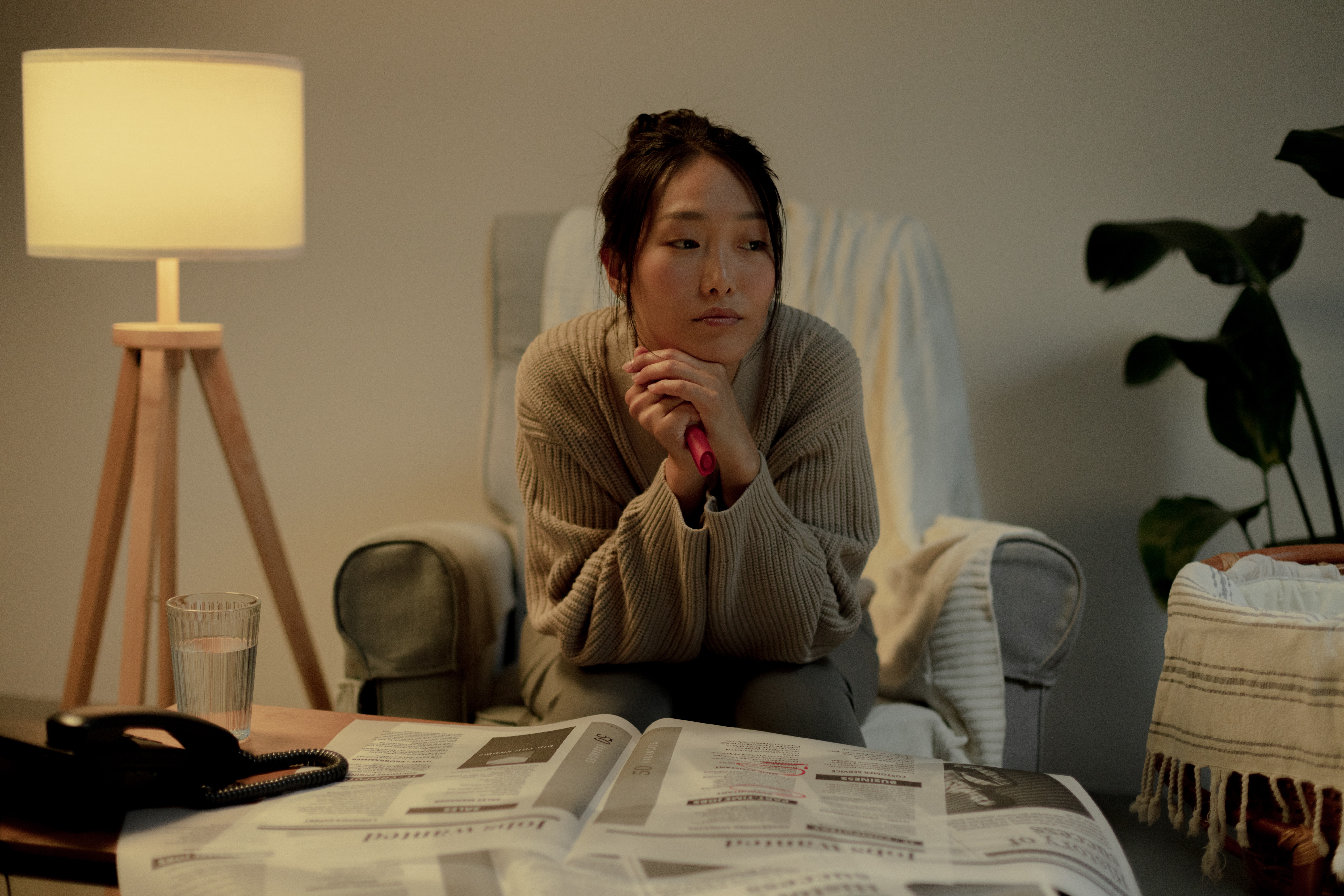Human minds have been conditioned for years (and through experience) to run away from things we dislike, and run toward things we like. We escape to avoid discomfort, pain, and unease while we chase what brings us immediate pleasure, gratification, or a sense of control. This is an interesting concept to observe and understand. Today as we change homes, jobs, and relationships, we can see that the same principles apply. Let’s walk together, mindfully, as we take a closer look at the mind’s tendencies and how they affect us, our families, our workplaces, and the world around us.
LETTING GO
When we go through difficult times, we’ve all heard a close friend or family member say, “Just let it go.” You may have noticed that sometimes the mind will replay these difficult times repeatedly, and what we remember about the incident can change dramatically over time. We may also remember things differently from others involved. Even people who feel they have a perfect memory will be biased in their mental perspectives. As a result, we may not speak kindly of a person or an experience that has hurt us, and we may even act differently because of our “understanding” of it. This can happen both in our personal and professional lives.
“The truth is, unless you let go, unless you forgive yourself, unless you forgive the situation, unless you realize that the situation is over, you cannot move forward.” — Steve Maraboli
This means that two people can look at the same moment from different perspectives—through the “vision” each person carries from past life experiences. So, if we go to a party and I remember it as having a fabulous spread of tasty treats because I love fruit, you may have found it awful because you are a pastry maker looking for unique baked creations. If either of us tells the other to “let it go,” the hurt that one may feel from that comment will be based on how much we have self-identified by our preferences. I might look forward to interacting with people more at parties, and you may look forward to the food itself. All of this affects us when we think of letting go.
Similarly, in the workplace, the more one identifies with the work or work environment, the less easy it would be to “let go” in times of change. If one loves the job, it’s not easy to let it go if there’s a job loss; however, if one focuses on finances and loses the job to get a higher-paying one, it may feel easier. If someone values working with different people, almost any job may be satisfying. Once again, it helps to know what people may identify with to fully understand why we do what we do, and what makes letting go easier for some and harder for others.
Once we have this understanding, moving forward after letting go (or being let go) in any situation can be easier. Resentment, anger, guilt, and judgment toward oneself or others only build resistance to the reality of the situation. Letting go is easier when one comes from a forgiving space, as Steve Maraboli’s quote shows us.
Remember, when moving away from what is not liked, letting go is easier. It’s less easy to let go in situations that were once loved—whether it’s a job or a relationship. When one grieves deeply, this is the best time to try to understand oneself deeply too. Since we are all interconnected, understanding oneself honestly and fully often opens awareness and understanding of others as well. This space of understanding allows for true forgiveness in a situation; this is the space that allows us to let go of opinions, beliefs, and judgments. This then opens a world of possibilities that the mind will be ready to see and receive joyfully.
HOLDING ON
The mind truly loves to hold on to what it finds pleasurable. This may be a sensory-related item, such as food or the touch of another. Sometimes it’s the feeling of power or authority over others, which can happen personally or professionally (e.g., with teachers, lawyers, doctors, or other higher-up positions). Tactics such as money or yelling can become a power “weapon” in these scenarios. You’ve likely heard of incidents where neither of these tactics has been obvious at first, but drastic incidents have occurred as a result, leading to domestic and/or public violence. Many relationship break-ups have this history, where someone has learned to hold on to their “power” secretively.
Can you believe that holding on can lead to such experiences? Perhaps you even know of an employee who was walked out of their office at a moment’s notice, or a partner that was suddenly handed divorce papers. This happens more often than you might think. Sometimes holding on when one feels wronged even has financial repercussions, as these cases might go to court at great cost to all involved.
I hope you can see that the act of “holding on”—if not accompanied by love, honesty, and integrity—can easily lead to greed, jealousy, competition, and anger.

Unfortunately, many of us have experienced these sorts of situations or heard about them in vivid detail, so our minds are now filled with fears. This feeling doesn’t give us the extra courage and confidence we need to hold on to what is most important.
What is most important? Here is another time that looking within ourselves helps us understand what we value most. It may be the company of others, our self-image, money, or it may be love. Most people understand that love is an ingredient worth holding on to (and some do love money!) Only honest self-reflection can help us understand what lifts us up. For this article, I wanted to shed some light on these ideas to encourage each person to understand their values and reasons for letting go or holding on to things.
“Never give up on someone. Sometimes the answers you are looking for are the same answers another person is looking for. Two people searching together are always better than one person alone.” — Shannon L. Alder
Oftentimes, the people we find ourselves working with, or living with, are looking at things from a slightly different perspective than our own. When two people (or more) are open to clearly and fully listening to each other through communication, each person can learn something to value and grow from. It’s important to note that a person needs to understand themselves first, before truly listening to another, or their minds will be filled with unconscious biases from previous memories. To get to a place of understanding, each person can benefit from working with an objective healthcare professional focused on such work. When we make an effort to understand ourselves, a clear and unbiased mind is very important. This then allows us to focus on holding on to what or who is most important. This is what we would want from others, and it’s time we started taking personal responsibility to begin from a clear-minded space to help ourselves and help that which is important to us.
REFLECTIONS FOR A HEALTHIER YOU
1. Do you know how to listen attentively, without judgment? Judgmental thoughts and comments often sit in our minds, ready to “pounce” on another; these thoughts may be true, but they’re not part of the art of attentively and truly listening. Practice deep listening daily.
2. Reflect on what you hold on to. Is it people? If so, is it with the expectation that they will behave in the way that feels right for you? If they act in a way that you do not agree with, will you avoid them, let them go, or shout at them? Would you be comfortable if they shouted, avoided you, or let you go because you changed in a way that was not right for them? Remember that each of us is changing daily. Is it money you hold on to? And at what cost?
3. Finally, reflect on why you hold on to what you do. Is it the temporary pleasures that go as quickly as they arrive (e.g., money, food, sex, or acquaintances)? Or is it your need to express love, acceptance, understanding, and humility around others? Is it in hopes or expectation of receiving the same returned to you? Understand your intentions and motives honestly. Remember that expressing these things is within our hands; expecting the same from others is not. This realization allows us to live from a conscious creation of our lives, rather than an unconscious world of confusion and conflict. And this is easier than it may seem.
Many people are not mindfully aware of these reflections daily. If we can take the time to do this, we will see that our world can shift into an accepting, peaceful, and loving space that allows for the flourishing of each person.
My simple closing suggestion would be that things that lift our spirit regularly, are worth holding on to; things that bring sadness or sorrow regularly, are worth letting go. May joy fill your hearts as you mindfully create room to receive it!
You May Also Like: The Gift of Love, Life and Loss, What Mindfulness Is: Healthy Communication, Mindful Wellness: Finding Everyday Joy.






